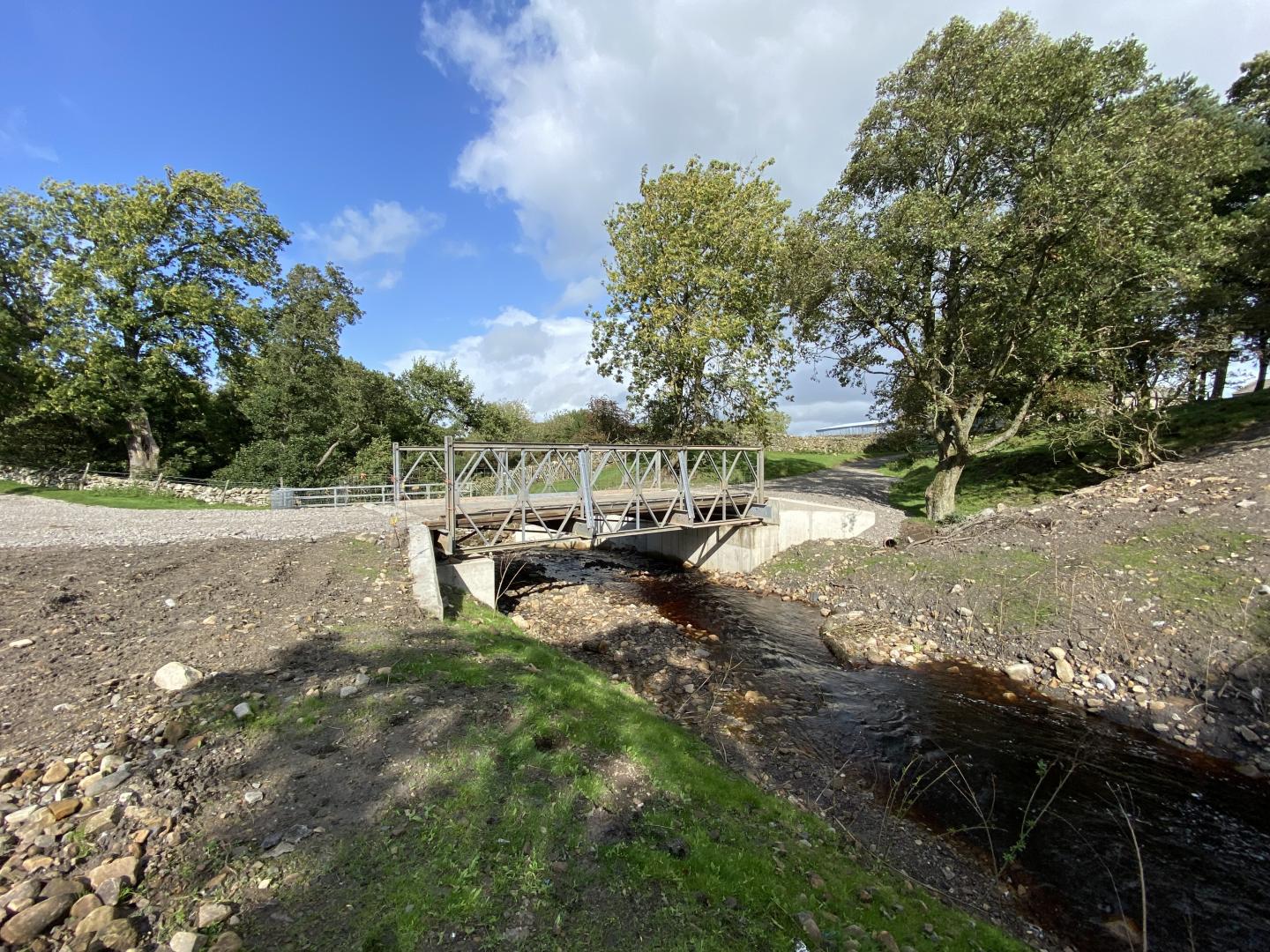Tees Rivers Trust has completed a project on Eller Beck to remove a weir and concrete crossing at Rutherford Bridge, and build a steel section bailey bridge.
The result is expected to be a positive impact on local biodiversity as the weir had been a major barrier to fish migration. Its removal will enable all species of fish to access ten kilometres of the beck network upstream.
Eller Beck is a tributary of the River Greta in the Tees catchment. The River Greta is one of four principal tributaries of the Upper Tees but the only one not impounded by a reservoir.
Although the health of the river has improved over the years, fish passage remains an issue downstream at the Tees Barrage.
However, there has been a gradual recovery of migratory fish species and the purpose of this project has been to increase habitat availability for all fish species.
Ben Lamb, of Tees Rivers Trust, said: “The biodiversity of the Eller Beck will increase as all species of fish will be able to move freely throughout the system.
Before the removal of the weir, brown trout, Atlantic salmon, minnow, bullhead, stone loach, brook lamprey, and European eel were found below the weir. Brown trout, Atlantic salmon, and European eel are all on the red list for conservation concern. The ‘minor’ species, such as minnow and bullhead, are an important food source for other fish, birds, and mammals.”
The improved biodiversity of Eller Beck, because of the naturalised channel, in turn enriches the wider ecology with increasing fish and invertebrate numbers providing a food source for bird and mammals.
Removal of the weir will reduce flood risk at the site and the benefits of the project will extend to the local farming community involved in managing watercourses and river catchments to boost income.
The work will also support the Tees Angling Passport which aims to attract more anglers to the river. Tees Rivers Trust is developing a network of small stream locations where fishing for small brown trout is a challenge, as part of the passport. Eller Beck is a good offer for this, which in turn could bring additional income to the farm.
Claire Hodgson, of Tees-Swale: Naturally Connected, said: “We’ll be interested to see the results of monitoring over the next few years to see the difference it has made.”
The trust worked with the North Pennines AONB Partnership through the Farming in Protected Landscapes and Tees-Swale: Naturally Connected programmes with £100,000 from the Farming in Protected Landscapes programme and £54,000 from the Tees-Swale: Naturally Connected programme.






